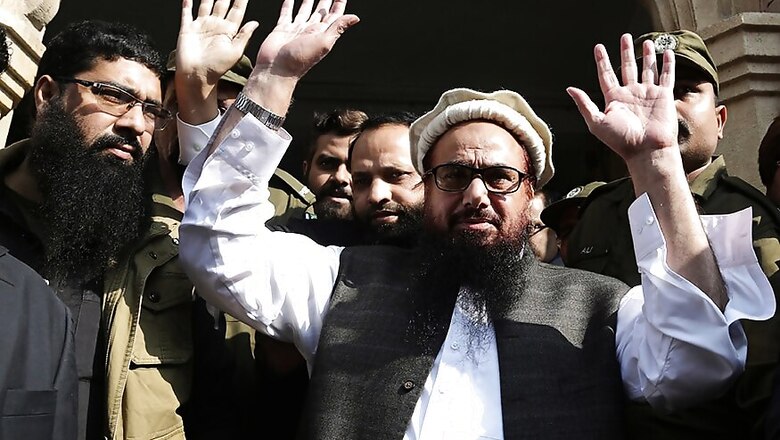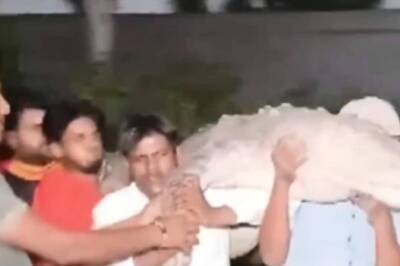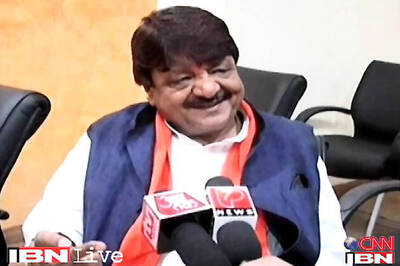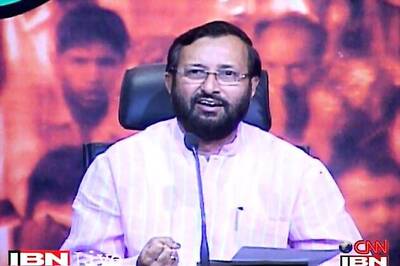
views
New Delhi: The Financial Action Task Force (FATF) plenary in Paris that begins in three days from now will deliberate on Pakistan’s blacklisting. But all indications from US State Department suggest a softening of stance by America, which means Pakistan could well stay in the grey list and be penalised no further. This development in Paris will also come just days before US President Donald Trump reaches India on February 24 for a big-bang visit.
Pakistan has been lobbying hard to get out of even the grey list but that doesn't seem possible at the moment with sources indicating that some European countries in FATF would like to see more concrete action being taken by Pakistan. In a January meeting of FATF in Beijing, where the task force was to access the progress, sources said it was expressed by France that Pakistan has so far checked very few boxes of the 27 agenda items it had promised to act on in 2018 to curb terror funding.
Even as the plenary is set to start on February 16, a Pakistani court convicted terrorist Hafiz Saeed to five-and-a-half years in jail to run concurrently in two cases of terror financing. India tried to draw attention to the timing of Saeed's conviction when government sources indicated it has happened on the eve of FATF plenary but US called it an "important step forward" in a tweet by the US State Department's Bureau of South and Central Asia.
Indian government sources also said the efficacy of this decision remains to be seen. This cautious response emerges from the fact that even in 2018, Saeed was under house arrest for 11 months but the activities of the terror outfit he heads — Jammat ud Dawa (JuD) — continued. Not only this, ultimately the Punjab province government in Pakistan watered down the terror charges against him to the extent that the court declared his house arrest untenable. However, this is the first time the 26/11 Mumbai attack mastermind has ever been convicted by court in any terror-related case.
While Indian government sources said this was part of a long-pending international obligation of Pakistan to put an end to support for terrorism, US said "the conviction of Hafiz Saeed and his associates is an important step forward — both towards holding LeT accountable for its crimes, and for Pakistan in meeting its international commitments to combat terrorist financing.” The tweet also referred to these terrorists as "non-state actors".
On January 24, US Principal Deputy Assistant Secretary of State Alice Wells had said any possible blacklisting of Pakistan by FATF "would be devastating for Pakistan's economic reform programme and for its ability to attract investors”. “We've been pleased to see progress by Pakistan towards fulfilling FATF obligations,” Wells said. This gave the first indication of the US stand vis-à-vis Pakistan at the Paris plenary even though Wells added that they would wait for the task force to do its evaluation on Pakistan.
Many analysts see this move as one closely linked with renewed talks between the US and Taliban to strike a peace deal that could allow President Trump to pull out US troops from Afghanistan. Pakistan is viewed as a crucial player with it being no secret that Taliban too have found safe haven on their soil.
When President Trump visits India, terror and regional security will be high on the agenda. While India is expected to convey its apprehension about Pakistan's sincerity in tackling terror pointing out to continued cross-border terrorism, it will be interesting to note whether US explains to India its stand on Pakistan in FATF.
US, on the other hand, had pushed for Jaish-e-Mohammad chief Masood Azhar to be designated as a terrorist by the UNSC 1267 sanctions committee last year in May soon after the dastardly Pulwama terror attack. Sources has told News18 that it was a US threat of a resolution that had forced China to lift its block on Azhar being designed a proscribed terrorist. However, days before the move in UNSC, a senior US official had told News18 that it will be quid pro quo for India's backing to US on Iran sanctions. India brought down its oil imports from Iran to zero from May last year.
As for Afghanistan, India has already communicated to US the impact on the security situation in the region in case US decides to pull out all its troops at once if a peace deal is truck with the Taliban. It is expected that India would like to understand the current developments with regards to the talks and convey its own understanding of the regional stability and security in that scenario.




















Comments
0 comment